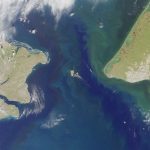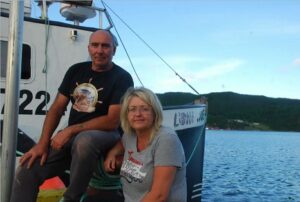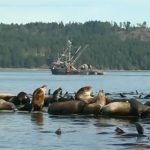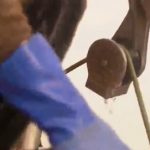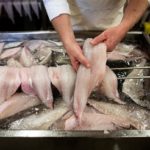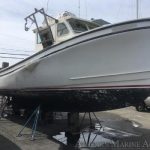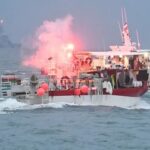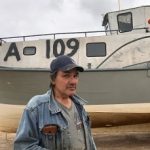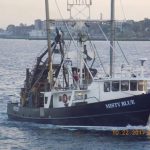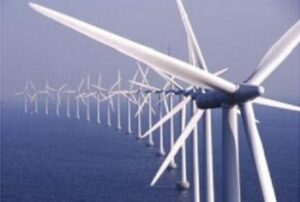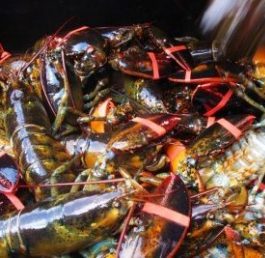Daily Archives: June 19, 2015
Pollution harms fishermen’s livelihoods
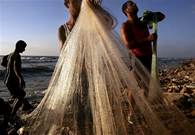 Waste pollution from sewage and mushrooming informal settlements, plus constant harassment from law enforcers has harmed subsistence fishermen in recent years, a study has revealed. Among their key findings was that there was significant environmental deterioration in the condition of the beaches. A multinational Durban oil refinery was identified as a major source of pollution (mainly chemicals /oil), often discharged into the Isipingo River. Pollution is killing our global fisheries. Where are the phony activists? Read the rest here 22:18
Waste pollution from sewage and mushrooming informal settlements, plus constant harassment from law enforcers has harmed subsistence fishermen in recent years, a study has revealed. Among their key findings was that there was significant environmental deterioration in the condition of the beaches. A multinational Durban oil refinery was identified as a major source of pollution (mainly chemicals /oil), often discharged into the Isipingo River. Pollution is killing our global fisheries. Where are the phony activists? Read the rest here 22:18
North Carolina Fisheries Association Weekly Update for June 19, 2015
 Click to read the Weekly Update for June 19, 2015 as a PDF To read all the updates, click here 20:02
Click to read the Weekly Update for June 19, 2015 as a PDF To read all the updates, click here 20:02
Canadian David McKendrick, who caught a real-life Jaws wishes he hadn’t
 David McKendrick was 22 when he went fishing one August day off Prince Edward Island. Now he realizes the great white shark he brought in — one of the biggest ever landed — was a “magnificent creature.” On its release forty years ago this Saturday, the original summer blockbusters’ vilification of great white sharks as mindless man-eaters provoked a trophy-hunting frenzy. Filled with guilt and remorse, he wishes it had never happened. Read the rest here 19:27
David McKendrick was 22 when he went fishing one August day off Prince Edward Island. Now he realizes the great white shark he brought in — one of the biggest ever landed — was a “magnificent creature.” On its release forty years ago this Saturday, the original summer blockbusters’ vilification of great white sharks as mindless man-eaters provoked a trophy-hunting frenzy. Filled with guilt and remorse, he wishes it had never happened. Read the rest here 19:27
State of Hawaii proposes emergency ban following mass harvesting of sea cucumbers
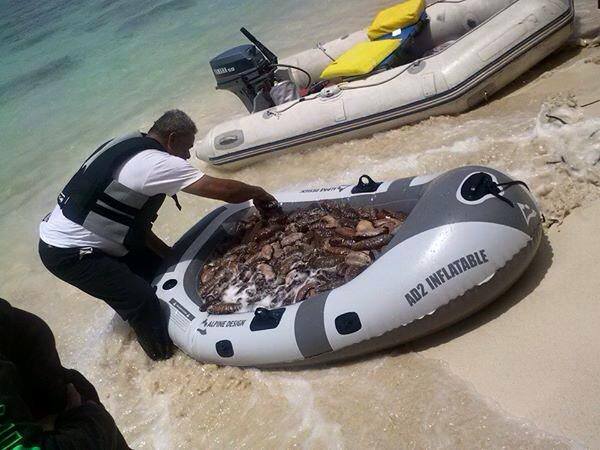 The Department of Land and Natural Resources is proposing an emergency rule that will ban any taking of sea cucumbers for the next 120 days. The move comes as officials report a new commercial fishery that mass harvests sea cucumbers on both Oahu and Maui. Photos on social media show sea cucumbers being harvested by the hundreds, possibly thousands at a time, from a beach in Waimanalo. Currently Hawaii has no specific rules governing the take of sea cucumbers and, while taking sea cucumbers from the ocean is not against the law,,, Video, Read the rest here 16:35
The Department of Land and Natural Resources is proposing an emergency rule that will ban any taking of sea cucumbers for the next 120 days. The move comes as officials report a new commercial fishery that mass harvests sea cucumbers on both Oahu and Maui. Photos on social media show sea cucumbers being harvested by the hundreds, possibly thousands at a time, from a beach in Waimanalo. Currently Hawaii has no specific rules governing the take of sea cucumbers and, while taking sea cucumbers from the ocean is not against the law,,, Video, Read the rest here 16:35
An Act to amend the Coastal Fisheries Protection Act of Canada
 Her Majesty, by and with the advice and consent of the Senate and House of Commons of Canada, enacts as follows: 18th JUNE, 2015 BILL S-3 SUMMARY This enactment amends the Coastal Fisheries Protection Act to implement the Port State Measures Agreement, to prohibit the importation of fish caught and marine plants harvested in the course of illegal, unreported and unregulated fishing and to clarify certain powers in respect of the administration and enforcement of the Act. 1. This Act may be cited as the Port State Measures Agreement Implementation Act. The definitions “fish” and “fishing vessel” in subsection 2(1) of the Act are replaced by the following: Read the rest here15:23
Her Majesty, by and with the advice and consent of the Senate and House of Commons of Canada, enacts as follows: 18th JUNE, 2015 BILL S-3 SUMMARY This enactment amends the Coastal Fisheries Protection Act to implement the Port State Measures Agreement, to prohibit the importation of fish caught and marine plants harvested in the course of illegal, unreported and unregulated fishing and to clarify certain powers in respect of the administration and enforcement of the Act. 1. This Act may be cited as the Port State Measures Agreement Implementation Act. The definitions “fish” and “fishing vessel” in subsection 2(1) of the Act are replaced by the following: Read the rest here15:23Warm water expected to keep killing Willamette River salmon
 Higher water temperatures in the Willamette River are most likely the cause of spring Chinook salmon deaths, according to fish biologists from the Oregon Department of Fish and Wildlife.According to ODFW, this year Chinook are dying earlier than usual. Most spring Chinook salmon usually die in the fall after they have spawned. The good news: More than 51,000 fish have crossed at Willamette Falls, well above the 50-year average of 41,000 fish. Read the rest here 14:46
Higher water temperatures in the Willamette River are most likely the cause of spring Chinook salmon deaths, according to fish biologists from the Oregon Department of Fish and Wildlife.According to ODFW, this year Chinook are dying earlier than usual. Most spring Chinook salmon usually die in the fall after they have spawned. The good news: More than 51,000 fish have crossed at Willamette Falls, well above the 50-year average of 41,000 fish. Read the rest here 14:46
Flounder Fishery Management Plan draws fire at NC Marine Fisheries Commission hearing
 Fishermen, recreational and commercial, along with environmentalists, scientists, seafood dealers and others spoke both for and against a proposed southern flounder supplement Wednesday. Around 160 people signed in at the hearing, of which about 66 voiced their opinions on the draft six-proposal supplement intended to reduce flounder catch – which includes both harvested flounder and dead discards – by 25-60 percent. One of the biggest items of contention between speakers was large mesh gill nets. Read the rest here 14:19
Fishermen, recreational and commercial, along with environmentalists, scientists, seafood dealers and others spoke both for and against a proposed southern flounder supplement Wednesday. Around 160 people signed in at the hearing, of which about 66 voiced their opinions on the draft six-proposal supplement intended to reduce flounder catch – which includes both harvested flounder and dead discards – by 25-60 percent. One of the biggest items of contention between speakers was large mesh gill nets. Read the rest here 14:19
Calls for rule changes after fishermen deaths
 Residents and local officials are calling for changes to federal fishing rules after the deaths of three crab fishermen in Newfoundland’s Placentia Bay. Calvin Peach, the provincial government member for the region, said Thursday federal restrictions meant the fishermen wound up in a seven-metre, open speedboat for a second crab quota rather than the longliner they had nearby. Peach said Kenneth Hickey, 48, had caught his wife’s quota Monday using her 13-metre longliner but under the rules had to use a different vessel Tuesday to get his own quota. Read the rest here 11:47
Residents and local officials are calling for changes to federal fishing rules after the deaths of three crab fishermen in Newfoundland’s Placentia Bay. Calvin Peach, the provincial government member for the region, said Thursday federal restrictions meant the fishermen wound up in a seven-metre, open speedboat for a second crab quota rather than the longliner they had nearby. Peach said Kenneth Hickey, 48, had caught his wife’s quota Monday using her 13-metre longliner but under the rules had to use a different vessel Tuesday to get his own quota. Read the rest here 11:47
Lobster prices up in New England as season off to slow start
Prices are high because 
NEW marine park off Broome that allows fishing has been slammed by green groups
 Despite praising the “spectacular turquoise waters and abundant wildlife” including unique snub fin dolphins, Mr Jacob said there would not be any no-take fishing zones within the bay. It has infuriated green groups including the Pew Charitable Trusts and local campaigners Environs Kimberley, who said sanctuaries were essential to boost the number, size and diversity of marine life and protect threatened species. The new park, to be jointly managed with the Yawuru traditional owners, will ban commercial gillnet fishing and mining in Roebuck Bay but has no marine sanctuary zones. Read the rest here 10:36
Despite praising the “spectacular turquoise waters and abundant wildlife” including unique snub fin dolphins, Mr Jacob said there would not be any no-take fishing zones within the bay. It has infuriated green groups including the Pew Charitable Trusts and local campaigners Environs Kimberley, who said sanctuaries were essential to boost the number, size and diversity of marine life and protect threatened species. The new park, to be jointly managed with the Yawuru traditional owners, will ban commercial gillnet fishing and mining in Roebuck Bay but has no marine sanctuary zones. Read the rest here 10:36
Netex Canada Netting makes transition from fishing to sports industry with ease
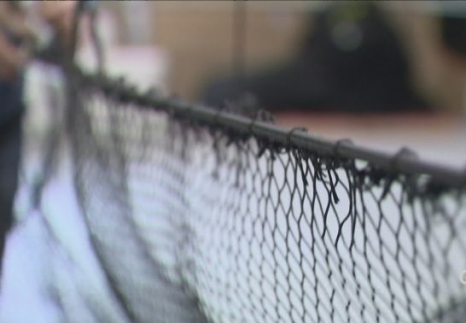 Mark Wilson grew up in Delta, expecting to make a career of commercial fishing just as generations of his family did before him. However, the decline of the business in B.C. led him to think of other ways his skillset could be used. “I’d been taught by my brothers how to build nets, and then worked with them when I was younger. They type of netting that we built for commercial [fishing] was the same way we build golf nets or baseball nets,” he said. Video, Read the rest here 10:22
Mark Wilson grew up in Delta, expecting to make a career of commercial fishing just as generations of his family did before him. However, the decline of the business in B.C. led him to think of other ways his skillset could be used. “I’d been taught by my brothers how to build nets, and then worked with them when I was younger. They type of netting that we built for commercial [fishing] was the same way we build golf nets or baseball nets,” he said. Video, Read the rest here 10:22
Letter: Federal fisheries legislation needed – Sam Parisi, Gloucester
As I said before, we need long-term help for our fleet. This means that we need a fisheries bill.  and our fishermen need a bill of their own. If we continue with the same restrictive fishing policies for small boats, there will not be anyone left to fish. The industry as a whole will collapse. It’s almost there now and we cannot let this happen. By the way, Gloucester’s fleet is largely made up of small boats. We need a comprehensive fisheries bill to save the industry from disaster. If the government does not step up to the plate and throw a life ring to the industry, there will be no fishery left for anyone. Read the rest here 07:45
and our fishermen need a bill of their own. If we continue with the same restrictive fishing policies for small boats, there will not be anyone left to fish. The industry as a whole will collapse. It’s almost there now and we cannot let this happen. By the way, Gloucester’s fleet is largely made up of small boats. We need a comprehensive fisheries bill to save the industry from disaster. If the government does not step up to the plate and throw a life ring to the industry, there will be no fishery left for anyone. Read the rest here 07:45
Fresh fish are auctioned at Hawaii pier, the largest in the United States
 As the sun rises over Honolulu, commercial fisherman have already unloaded their catches and docked their boats for the day. The fish are lined up on pallets, packed in ice and displayed for buyers to inspect. The auction is the largest in the United States and one of the largest in the world. It’s the only fish auction between Tokyo and Maine, and, according to the company, the only tuna auction of its kind in the nation. Photos, Read the rest here Additional photo’s here 07:04
As the sun rises over Honolulu, commercial fisherman have already unloaded their catches and docked their boats for the day. The fish are lined up on pallets, packed in ice and displayed for buyers to inspect. The auction is the largest in the United States and one of the largest in the world. It’s the only fish auction between Tokyo and Maine, and, according to the company, the only tuna auction of its kind in the nation. Photos, Read the rest here Additional photo’s here 07:04

































